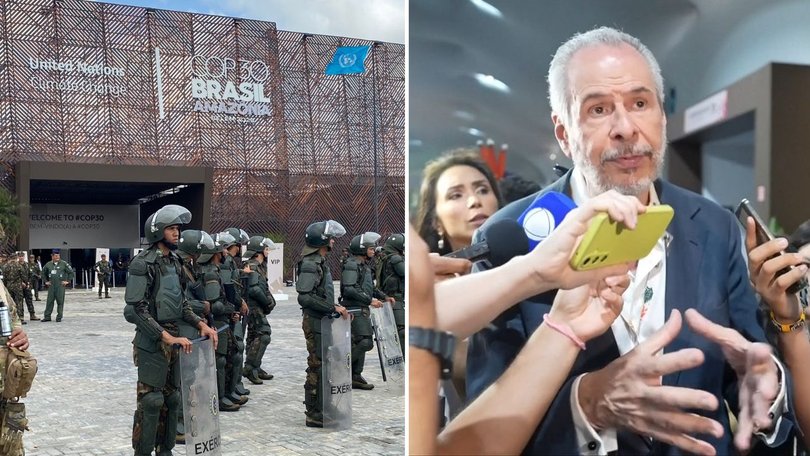COP30 extended due to rift over future of fossil fuel: ‘Clown show’
The COP30 summit in Brazil is being extended as representatives from 200 countries taking part were unable to reach agreement on a deal to strengthen international climate efforts.
There is fierce debate about whether the summit should support a plan to phase out coal, oil and gas.
More than 80 countries are campaigning for the development of a plan to phase out fossil fuels, but there is considerable resistance, particularly from oil-producing countries.
Sign up to The Nightly's newsletters.
Get the first look at the digital newspaper, curated daily stories and breaking headlines delivered to your inbox.
By continuing you agree to our Terms and Privacy Policy.The negotiations are set to continue.
“This cannot be an agenda that divides us,” COP30 president André Corrêa do Lago told delegates in a public plenary session at the conference before releasing them for further negotiations.
“We must reach an agreement between us.”
The rift over the future of oil, gas and coal underscored the difficulties of landing a consensus agreement at the annual conference, which serves as a perennial test of global resolve to avert the worst effects of global warming.
A draft text for a deal that was released by summit host Brazil before dawn contained no reference to fossil fuels, dropping entirely a range of options on the subject that had been included in an earlier version.

Scores of countries, including major oil and gas producer countries, had called the options unacceptable.
Panama negotiator Juan Carlos Monterrey told a press conference before the plenary on Friday morning that leaving fossil fuels out of the COP30 deal risked turning the talks into a “clown show”.
“Failing to name the causes of the climate crisis is not compromise. It is denial,” he said.
Previous COP summits have blown past their deadlines before eventually reaching a compromise.
A deal text would need approval by consensus among the nearly 200 countries present in order to be adopted.
The United States has declined to send an official delegation this year under President Donald Trump, who has called global warming a hoax.
Corrêa do Lago said the exit of the world’s largest economy meant uniting around COP30 was crucial to ensure the multilateral process survives: “The world is watching.”
For days, countries have wrangled over the future of fossil fuels, whose burning emits greenhouse gases that scientists say are by far the largest contributors to climate change.
Dozens of members have been pushing hard for a “roadmap” laying out how countries should follow through with a promise made at COP28 two years ago to move away from oil, gas and coal.
The European Union’s commissioner for climate Wopke Hoekstra said in a statement delivered during consultations on Friday that the issue was important to building on past commitments to slash emissions.
“We need to make sure that the shift from fossil fuels to clean energy is real and in the text,” he said.
A Brazilian negotiator told Reuters the fossil fuel language was unlikely to be reintroduced, and that the summit presidency was pressing for only small adjustments to the existing draft.
- With DPA
Originally published on Reuters
